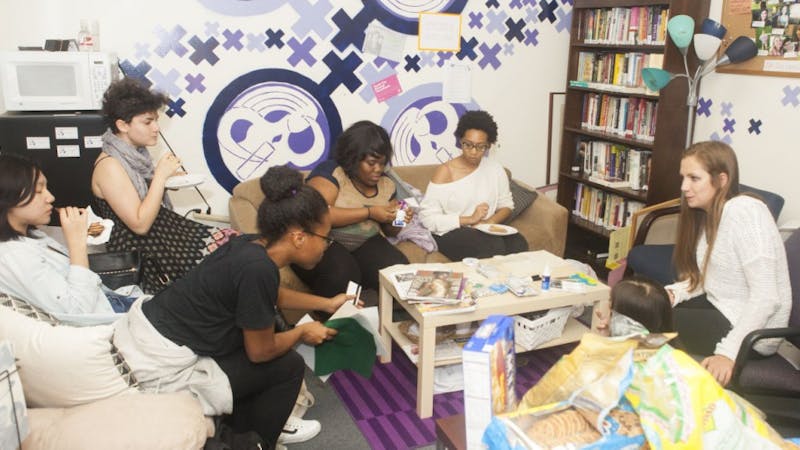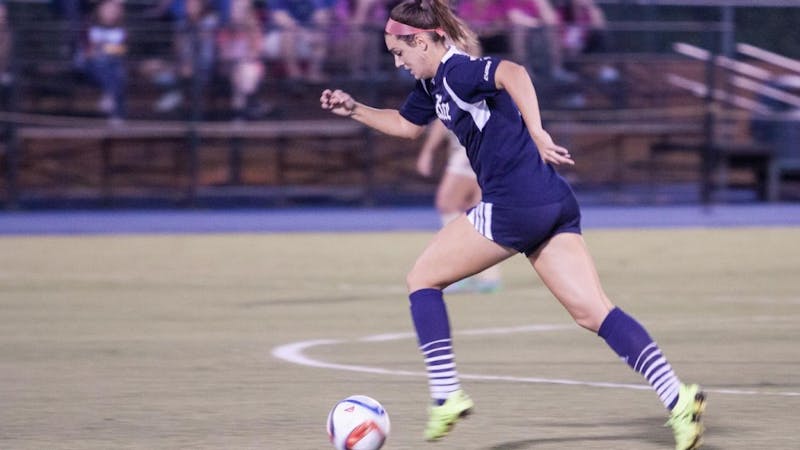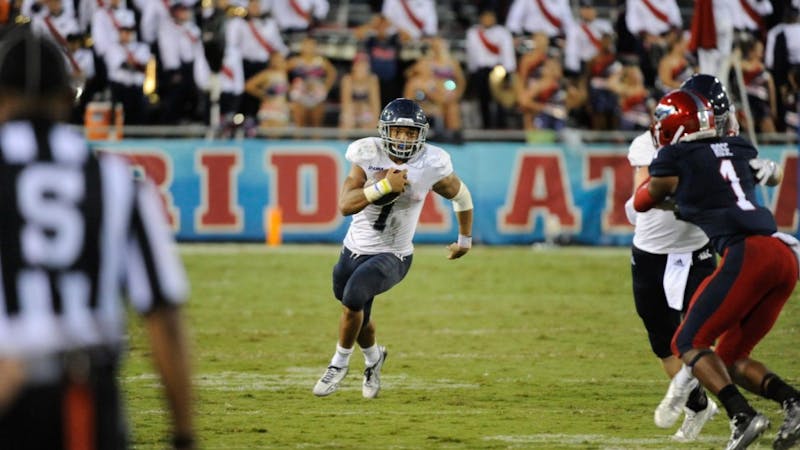OPINION
10/20/15 8:12pm
My friend told me a while back that he encountered an “astounding ass.” He was returning a textbook at a UPS station, and the man assisting him asked him his major, to which my friend responded that he wasn’t sure yet.“Well, let me give you some advice,” UPS Man said. “Whatever you do, don’t become an English major. I mean, why would you major in a language you already speak and know?”My friend relayed this experience to me with righteous rage and frustration — probably half of which was for my benefit.I wasn’t even upset by the story. I mean, recently a Rice administrator literally said on the record, with extraordinary nonchalance, that our incoming humanities majors this year had lower test scores than STEM majors.I’ve come to expect this attitude, at this point. It’s so easy to feel the projected stereotypes — English majors aren’t good at math, English majors have it so easy in school, English majors want to publish a novel and become the next J.K. Rowling. It’s always a surprise if someone says, in response to my “confessing” that I’m an English major, “That’s really cool, I don’t think I could ever do that!”How many times have people I barely know asked me what I was going to do with an English major? How many times have people asked me why I wanted to be an English major? How many times have people asked me if I’m also pre-med or pre-law, as if that’ll somehow justify “what” I am? Why can’t I just be an English major?Every first club meeting, every casual introduction during which we detail name, college, major, I flinch when I have to follow “CHBE” or “kinesiology pre-med” with plain old “English.” It’s a knee-jerk reaction of feeling, like I have to explain myself, because apparently being an English major is intrinsically confounding. It’s not just others’ perceptions; I’ve begun to believe the prejudice myself. I won’t lie — I’ve had more than my fair share of moments of inferiority. When I hear that someone, especially a girl, is majoring in computer science or bioengineering, I feel awe and a strong pinch of jealousy. I always ask myself, “Why couldn’t I do that?”And I think this feeling of inferiority is especially prevalent at Rice, a school so obviously focused on STEM students, that every English major I meet is a treasure to behold, a rare sympathizer and genuine peer.Some people think we sit on our butts all day and ponder fictional characters uselessly, that we don’t actually do anything while other students are at lab or research or the OEDK. Yes, the STEM students are incredibly busy — I respect that. They’re brilliant and they do so much in school and the real world. But the fact that English (and really any humanities) majors have shockingly fewer class requirements does not invalidate what we do. We make sure we’re busy, and we choose what makes us busy. Trust me, we’re loaded on the extracurriculars, and our classes take time too, in a different way. Such critics should be ashamed for shaming us and what we love. What right do they have to criticize the choice we’ve made? Maybe we know something they don’t — something hidden in the (literal) hundreds of books we have to read in school, our analyses, the millions of words we’ve written.Language built this world. Who cares if we all already know it? In the Old Testament, when the people grew too arrogant and tried to build the Tower of Babel with an intent to reach the heavens, God only had to take away their ability to communicate, and they fell apart, just like that.English teaches us about people and how to understand them. It teaches us about experiences we have yet to encounter. It teaches us about the many facets of the world about which we would otherwise have no idea.So before you assume English majors had no other choice and that they are literally incapable of everything else, ask yourself if you’re able to analyze the hell out of a seven-word sentence the way we can, or turn a three-second encounter into a 16-page short story, or even begin to comprehend the world in all its layers and people and confusions. And before you take to criticism, ask yourself if you love your major as much as English majors love theirs. Very few people these days can boast they truly know their passions. In the millennial world, where instant gratification (not to mention instant moneymaking) is all the rage and ladder-climbing is considered an absolute necessity, many have lost sight of what they genuinely love. If there’s one thing I know about English majors, it’s that we all love what we’re studying.English majors aren’t the lackadaisical, last-resort people some might assume them to be. We didn’t swivel around looking for anything but this and find that we had no choice but to sigh, settle for English. And so what if being purely an English major without a pre-____ track sometimes means having to “wait and see”? There’s nothing wrong with that. People jump from job to job in their 20s anyway, sometimes later than that.I’m tired of defending my life choice to people. I’m tired of having to cite people like Mario Cuomo, Sting (ha), Diane Sawyer or Steven Spielberg. Do I really have to justify my major based on celebrities’ successes?I’m not going to make it my mission to critique your or anyone’s major because it’s not like mine. Major in whatever the heck you want. The point is, don’t shit on *insert major here* because you probably have no idea what you’re talking about. Trust that it’s nearly the same across the board for any major: If we work hard, we’ll get somewhere. Simple as that. Even if our “somewhere” is not as concrete as “I’m going to be a pediatric oncologist” or “I’m going to be a software engineer,” doesn’t mean it’s not valid. We’ll figure it out. There’s nothing wrong with giving it a little time.Julianne Wey is a Jones College sophomore and a Thresher Copy Editor.A version of this article appeared in The Odyssey.






